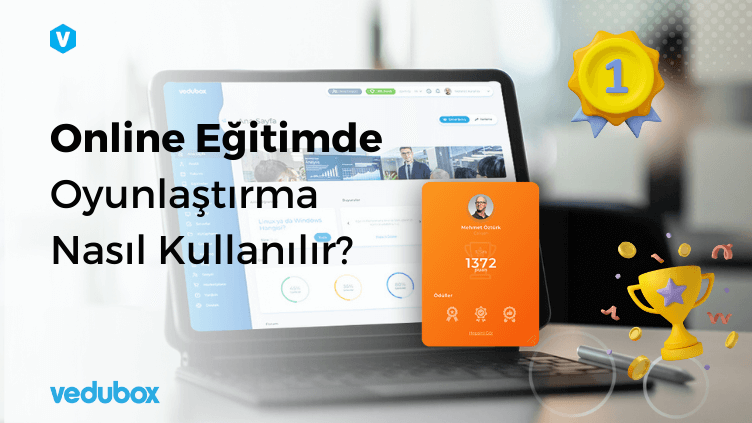The world of Learning Management Systems (LMS), which is getting bigger each year and gains momentum in an innovative direction, continues to offer us many innovations in 2023. Here we have prepared a list where you can explore all these latest developments together.
Artificial Intelligence and Machine Learning: Learning Management Systems (LMS) can combine artificial intelligence and machine learning algorithms to create customized learning paths for each participant based on different needs, interests, and learning styles. This approach will help them achieve their learning goals faster and more efficiently. For example, an LMS can use artificial intelligence to grade and provide feedback on a classic answer that a participant has written.
Integration of Augmented Reality (AR) and Virtual Reality (VR): LMSs can incorporate AR and VR technologies to create immersive learning experiences. It can provide immersive, engaging learning experiences that may help participants better understand and retain course materials. For example, you can provide an interactive learning process while making complex concepts interesting with virtual tours and realistic simulation experiences.
Learning Analytics: Learning analytics can provide insights about participants’ performance, engagement, and behavior while helping educators identify areas for improvement and deliver personalized learning activities for participants, with teaching methods appropriate to their learning styles.
Mobile Learning: LMSs can be made more suitable for mobile devices with this learning style that is increasing in popularity day by day. These systems, which allow participants to access learning content on the go, are designed mobile friendly, allowing participants to access course materials and complete their homework from their smartphones and tablets.
Microlearning: Microlearning attempts to present information to participants more effectively by breaking down complex topics into smaller more manageable chunks. This quick and easy-to-consume content can be especially effective for participants who are on the go and need to learn information quickly. LMSs can offer more microlearning opportunities such as short videos, quizzes, and infographics.
Gamification: Gamification has been a popular trend in education for several years, and LMSs can include gamification elements such as badges, leaderboards, and rewards to increase participant motivation and engagement. In this way, they can make learning more interesting while motivating the participant.
Adaptive Learning: LMSs can use adaptive learning algorithms to adjust the difficulty level of scope based on a participant’s progress, skills, and learning styles. This approach can help participants identify their strengths and weaknesses more accurately and receive feedback tailored to their personal needs.
Social Learning: LMSs can include social learning features that allow participants to interact with each other and collaborate on projects. These features can facilitate intergroup learning and knowledge sharing, which can enhance the overall learning experience.
Cloud-based deployment: LMSs contribute to the secure storage of all information and materials about participants and educators in one place, using a cloud-based distribution that requires no installation and is cost-effective. In this way, the participants; can access course materials from any area, at any time, using any device connected to the Internet.
You can request demo to meet Vedubox’s cloud-based LMS system, which will allow you to access all these innovations together.







